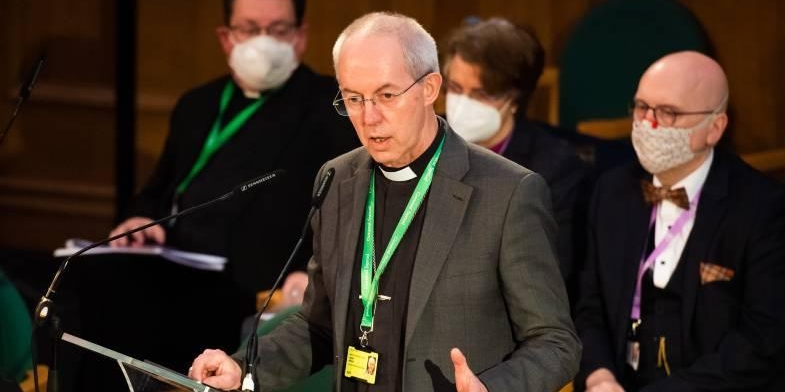How to keep the faith in the digital revolution? - The power of context

This is the final in a series of blog posts by Matt James, looking at how we can keep the faith in the digital revolution. Read the rest of the series here.
Do you ever stop to think about the speed of technological change? It sounds too much like stating the obvious that technology is advancing at an ever increasing rate. But do we ever stop to think just how fast and why? Take for example (as a simple measure) the level of users of new tech:
Alexander Graham Bell delivered the first phone to the general public in 1874, with the first telephone line constructed three years later. It was 75 years later that the phone was in homes of 50 million people on a global level.
Compare this with the advent of the radio which took just 38 years to have 50 million owners. The television was faster still, taking 13 years to reach 50 million owners.
The ubiquitous internet took a mere 4 years to achieve 50 million users, allowing them to surf their way along the information superhighway into a new and ever expanding world of interconnectedness.
What technology allows us to do (in comparison to without it) is obviously key. But what also appears important is context. If the context is not right, it is not likely that the all important ‘tipping point’ will take place.
This blog concludes a series of three, which have been looking at the impact of the digital revolution and beginning to consider what factors could help shape a Christian response. To help us we're drawing inspiration from Malcolm's Gladwell's book The Tipping Point - that seemingly magical moment when ideas and trends reach a certain point and spread like wildfire. Gladwell identifies three key factors that help to achieve the Tipping Point:
1. The law of the few
2. The stickiness factor
3. The power of context
Put simply, the power of context is recognising the fact that humans are sensitive to and strongly influenced by the environment in which they live. In ways that we don’t necessarily appreciate, our inner states are very often the results of our outer circumstances. The outward affects the inward. That is not to dismiss the importance of personality and psychology and the part they play in shaping behaviour, but there are particular points in time when context can tip human behaviour in a certain direction, regardless of personality.
Gladwell believes social phenomena act as epidemics, which are, at their root, all about the process of transformation. The digital revolution could be regarded as an epidemic as it transforms our lives in unprecedented ways. If we are to keep the faith in the digital revolution, we can our play our part in helping to question and critique ideas being advanced so as to see the digital revolution as a force for good in humanity’s flourishing. As we’ve seen, that’s the Law of the Few in action.
Changing the content of communication can do it; by making a message so memorable that it sticks in someone’s mind and compels them to action. That’s the Stickiness factor.
We have seen how the effects of the digital revolution are inherently ‘sticky’ leading to many positive as well as negative social implications. In response there is a need for us to make the message even stickier by demonstrating the importance of creating a ‘high tech, high touch’ world.
Small changes in our context though can be equally as important which can be found in the power of context. During the 18th – 19th century the Methodist movement became an ‘epidemic' in England and North America, tipping from 20,000 to 90,000 followers in the space of five or 6 years in the 1780s. By no means the most charismatic preacher or theologian of this era (those accolades could be awarded to George Whitfield, Calvin or Luther), John Wesley’s genius lay in his ability to organise.
In each town he visited, he stayed long enough to establish groups of his most enthusiastic of this converts. Converts were required to commit to attend weekly gatherings and to adhere to a strict code of conduct. The consequences of them failing to live up to these standards were expulsion from the group. These groups therefore stood for something and built a sense of community with clear boundaries.
Wesley realized that if you wanted to bring about a fundamental change in people’s belief and behaviour, a change that would persist and serve as an example to others, you needed to create a community around them, where those new beliefs could be expressed, shared and nurtured.
No trend can “flourish” without the right context. As we have seen the digital revolution brings with it many opportunities and benefits, but how far should we pursue these? The convenience by which we can ‘connect' and interact, confounding the barriers of time and space, is amazing but what is it doing to maximise the human experience? Observing the rise of internet trolling, social disinhibition and increased levels of loneliness would suggest some real areas of concern.
Rather than fearing the digital revolution, the Church is well placed to help demonstrate and maximise the benefits of the digital revolution. In community we can help and support one another live out a life that champions both the 'high tech' and 'high touch’.
The fundamental question facing the human race is whether the twenty-first century will be the century during which technology rules the roost, or humans rule the technology – and use it to advance all those things that are good for people. If it’s to be the former, we need to remember C.S. Lewis’ sobering words from way back in the middle of the last century. That when we talk about our ‘conquest of nature’ (that is, technology) what’s really going on is that some people use ‘nature’ to exercise power over other people.
If culture is the glue that holds society together, or the beliefs, behaviours, attitudes and values of a particular people group, then the Kingdom of God is his alternative culture that his church is building. The Church is called to challenge the assumptions of the culture, called to speak prophetically into the public arena. God is raising up a church that will work in the arts, media, politics, business, law and order, health and education to establish His culture - the Kingdom of God.
As the Church we believe relationships to be central to what it means to be human, taking time for each other and with each other. Yet also we are supposed to be the ones who believe that God created the heavens and the earth and then gave to His human creatures a special responsibility to manage and develop His creation. What theologians call the cultural mandate. Responsibility for science and agriculture and the arts and government and every other dimension of life on the planet. That’s ours, and it means we will never be right if we turn against new knowledge and pretend it isn’t there. Yet at the same time as we embrace knowledge and learning and all that goes with the new technologies, we embrace them as stewards. With responsibility. As Nigel Cameron notes, "We’ve got God’s garden to take care of. But it’s God’s garden."
Proverbs 29:18 states, "Where there is no vision, the people perish". This is a popular text, more often associated with setting goals for our lives. Taking a deeper look at this verse and reading it an alternative translation, helps to illuminate the text still further. The Hebrew text says: “Without a redemptive revelation the people lead undisciplined lives.” This verse talks about you and me redefining the culture of our immediate environment.
God wants to inspire us not just with a sense of purpose and set of goals for our lives, but a redemptive revelation of Himself. He wants to show you something of his own nature; something so revolutionary that, if you live it out, it will actually redeem things around you for the kingdom of God. Because of that revelation, you will be able redefine what it means to be human and to make sense of how to do life within the fascinating digital era in which we find ourselves in.
We can’t run away from our responsibility to help lead the ethical discussion any more than we can get out of commitment to embrace new science and technology. The contemporary Church has an exciting role to play in helping to challenge the conventional wisdom, to commit ourselves to thinking hard and doing the right thing, and then begin to exercise the kind of leadership that former generations of believers did on the great issues of their time. It’s time for Christians to respond to the call to be distinctive, and to be smart.
The tech revolution has changed everything and poses a fundamental question for us to respond to. Will the twenty-first century be the century technology becomes king by ultimately ruling over us and control our lives? Or will it be the century when humans use their God-given stewardship over the natural order to bring about peace and prosperity and the flourishing of our human-ness – a human-ness made in the image of God? There’s a tipping point on the horizon.




Share story
How to keep the faith in the digital revolution? - The power of context